Transforming Kitab Kuning Literacy in the Digital Era: Challenges and Future Prospects for Islamic Education
DOI:
https://doi.org/10.35719/aladalah.v28i1.397Islamic boarding schools or pesantren, integral to traditional Islamic education in Indonesia, presently confront a pivotal moment due to the rapid advancement of technology and digital transformation. While previous studies have emphasized enhancements in institutional and curricular frameworks, there has been inadequate attention to how these modifications fundamentally transform the notion of kitab kuning literacy. This study examines the improvement of kitab kuning literacy through an extensive literature analysis that integrates many research aspects of pesantren modernism, digital pedagogy, and critical literacy. A methodical examination of academic literature was performed utilizing major databases, concentrating on publications from the previous decade and foundational texts. The results indicate that the improvement of kitab kuning literacy involves not only technical integration but also a profound transformation of the pesantren environment. Contemporary literacy encompasses three interconnected components: traditional literacy, which preserves academic heritage (sanad); adaptive digital literacy, which utilizes technological tools for accessibility and hybridity; and critical literacy, which empowers students to assess and validate information in the post-truth era. This study provides a comprehensive framework that elucidates the epistemic progression of kitab kuning literacy and delineates practical consequences for policymakers and educators in curriculum development, teacher training, and the continuous improvement of Islamic education.
Downloads
References
Achmadin, B. Z., Kawakip, A. N., Nafis, M. M., Barizi, A., Asrori, M., & Amrullah, A. M. K. (2024). The Future of Pesantren: Reconciling Tradition with Global Educational Trends. Jurnal Pendidikan Agama Islam (Journal of Islamic Education Studies), 12(2), 197–222. https://doi.org/10.15642/jpai.2024.12.2.197-222
Arif, M., Nasir, R., & Ma’arif, M. A. (2025). The Kitab Kuning Learning Model in the Development of Student Expertise in Pesantren-Based Higher Education. Nazhruna: Jurnal Pendidikan Islam, 8(1), 52–74. https://doi.org/10.31538/nzh.v8i1.8
Basori, R., Raharjo, T. J., Prihatin, T., & Yulianto, A. (2023). Maintaining Salafi Values through Innovative Management Practices at Pesantren. Jurnal Pendidikan Islam, 9(2), 145–156. https://doi.org/10.15575/jpi.v9i2.25376
Bizami, N. A., Tasir, Z., & Kew, S. N. (2023). Innovative pedagogical principles and technological tools capabilities for immersive blended learning: A systematic literature review. Education and Information Technologies, 28(2), 1373–1425. https://doi.org/10.1007/s10639-022-11243-w
Collins, A., & Halverson, R. (2018). Rethinking Education in the Age of Technology: The Digital Revolution and Schooling in America. Teachers College Press.
Dunlosky, J., Rawson, K. A., Marsh, E. J., Nathan, M. J., & Willingham, D. T. (2013). Improving Students’ Learning with Effective Learning Techniques: Promising Directions from Cognitive and Educational Psychology. Psychological Science in the Public Interest, 14(1), 4–58. https://doi.org/10.1177/1529100612453266
Faisal, A., Pabbajah, M., Abdullah, I., Muhammad, N. E., & Rusli, Muh. (2022). Strengthening religious moderatism through the traditional authority of kiai in Indonesia. Cogent Social Sciences, 8(1), 2150450. https://doi.org/10.1080/23311886.2022.2150450
Friedman, R. S., & Deek, F. P. (2003). Innovation and education in the digital age: Reconciling the roles of pedagogy, technology, and the business of learning. IEEE Transactions on Engineering Management, 50(4), 403–412. https://doi.org/10.1109/TEM.2003.819650
Fuady, S., Rahim, H., Suparta, M., & Fajarini, U. (2024). Educational Modernization and Innovation in Islamic Boarding Schools in Indonesia. International Journal of Islamic Educational Research, 1(3), 52–71. https://doi.org/10.61132/ijier.v1i3.53
Hafidzi, A. (2020). The Ability of Islamic Boarding School Students in Facing the Digital Literacy Era with Critical Reading. IJGIE (International Journal of Graduate of Islamic Education), 1(2), 141–153. https://doi.org/10.37567/ijgie.v1i2.231
Hajar, A., Maskuri, M., & Anwar, C. (2025). Islamic Multicultural Education Innovation Through Transformational Leadership: An Analysis of the Cadre Model at the Pondok Modern Darussalam Gontor. Jurnal Pendidikan Islam, 15(1), 1–13. https://doi.org/10.38073/jpi.v15i1.2310
Halimah, S., Yusuf, A., & Safiudin, K. (2024). Pesantren Education Management: The Transformation of Religious Learning Culture in the Age of Disruption. Nidhomul Haq: Jurnal Manajemen Pendidikan Islam, 9(3), 648–666. https://doi.org/10.31538/ndhq.v9i3.16
Halimi, H., Ulya, M., & Rahmatillah, S. (2022). The Digitalization of Kitab Kuning. 282–288. https://doi.org/10.2991/assehr.k.220206.036
Iankovskaia, A. (2024). Reading Arabic in Sumatra: Interlinear translation in didactic contexts. Indonesia and the Malay World, 52(153), 221–242. https://doi.org/10.1080/13639811.2024.2354597
Ibda, H., Sofanudin, A., Syafi’, Moh., Soedjiwo, N. A. F., Azizah, A. S., & Arif, M. (2023). Digital learning using Maktabah Syumilah NU 1.0 software and computer application for Islamic moderation in pesantren. International Journal of Electrical and Computer Engineering (IJECE), 13(3), 3530. https://doi.org/10.11591/ijece.v13i3.pp3530-3539
Ichwan, M. N., Pabbajah, M., & Amin, F. (2024). Digitization of Religious Tafsir: The Fading of Indonesian Ulama Authority in Post Truth Era. Jurnal Studi Ilmu-Ilmu Al-Qur’an Dan Hadis, 25(2), 320–345. https://doi.org/10.14421/qh.v25i2.5545
Ichwan, Moh. N., Amin, F., Khusairi, A., & Andrian, B. (2024). Digitalization and the shifting religious literature of Indonesian Muslims in the Era of Society 5.0. Islamic Communication Journal, 9(2), 245–266. https://doi.org/10.21580/icj.2024.9.2.22515
Istiqomah, N., Nadhiroh, W., Zulaichah, S., & Amnesti, S. K. W. (2025). Transforming Kitab Kuning Recitation through Digitalization in Pesantren. Jurnal Lektur Keagamaan, 23(1), 342–272. https://doi.org/10.31291/jlka.v23i1.1358
M. Alkaf, Muhammad Said, & Saiful Hakam. (2022). The Authority of Ulama towards Politics: The Role of Teungku, Tuan Guru and Kiai in Nation Below the Wind. Progresiva: Jurnal Pemikiran Dan Pendidikan Islam, 11(02), 132–152. https://doi.org/10.22219/progresiva.v11i02.22964
Malisi, M. A. S., Sulasman, S., & Mohad, A. H. (2024). Institutionalizing Educational Reform: Balancing Tradition and Modernity at Pesantren. Jurnal Pendidikan Islam, 10(2), 363–374. https://doi.org/10.15575/jpi.v10i2.24636
Mas’ud, Subagyo, T., & Arifin, M. F. (2025). The Existence of The Sorogan Method in the 21st Century: Its Effectiveness, Role, and Relevance in Modern Education. Leadership: Jurnal Mahasiswa Manajemen Pendidikan Islam, 6(2), 193–206. https://doi.org/10.32478/wm1cn365
Muhyiddin, D. S., Suhada, D., Yamin, M., Arifin, B. S., & Hasanah, A. (2022). The Relevance of The Character Education Development Model in Islamic Boarding Schools. Nazhruna: Jurnal Pendidikan Islam, 5(3), 1129–1145. https://doi.org/10.31538/nzh.v5i3.2479
Muliana, S., Yahya, M., & Rohmatun, T. N. (2024). The Scientific Sanad Tradition of Islamic Boarding Schools as a Basis for Strengthening Moderate Religion in the Post-Truth Era. IJIBS, 2(1), 1–12. https://doi.org/10.35719/ijibs.v2i1.29
Mustofa, M. Y., Mas’ud, A., & Elizabeth, M. Z. (2023). Hybrid Pesantren in Indonesia; Analyzing the Transformation of Islamic Religious Education in the Digital Age. Al-Tadzkiyyah: Jurnal Pendidikan Islam, 14(1), 79–104. https://doi.org/10.24042/atjpi.v14i1.16928
Mutamimah, D. H., Iva, L. Z., Maulida, R., & Chala, N. (2025). Strategic Management in Revitalizing Kitab Kuning Learning in the Digital Era: A Study at the Darul Falah Ponorogo Islamic Boarding School. Shibghoh: Prosiding Ilmu Kependidikan UNIDA Gontor, 3, 558–572. https://ejournal.unida.gontor.ac.id/index.php/shibghoh/article/view/13755
Muttaqin, Z. (2020, February 4). The Ngaji Online: Transforming Islamic Learning for Moslem Communities in the Digital Age. Proceedings of the 19th Annual International Conference on Islamic Studies, AICIS 2019, 1-4 October 2019, Jakarta, Indonesia. https://eudl.eu/doi/10.4108/eai.1-10-2019.2291734
Pasi, K. M., Rasyidin, R., & Harahap, R. M. (2020). Education System of Modern Islamic Boarding School in The Postmodern Era. Nazhruna: Jurnal Pendidikan Islam, 3(3), 311–323. https://doi.org/10.31538/nzh.v3i3.805
Pohl, F. (2006). Islamic Education and Civil Society: Reflections on the Pesantren Tradition in Contemporary Indonesia. Comparative Education Review. https://doi.org/10.1086/503882
Pribadi, Y. (2013). Religious Networks in Madura: Pesantren, Nahdlatul Ulama, and Kiai as the Core of Santri Culture. Al-Jami’ah: Journal of Islamic Studies, 51(1), 1–32. https://doi.org/10.14421/ajis.2013.511.1-32
Rahmadani, L. S., & Raharja, S. (2025). Revitalizing Islamic Education: The Role of Management and Curriculum Design in Addressing Social Change in Pesantren. Fikri: Jurnal Kajian Agama, Sosial Dan Budaya, 10(1), 368–382. https://doi.org/10.25217/jf.v10i1.6166
Ritonga, M. (2020). The Existence of Yellow Books (Kitab Kuning) as the Sources of Islamic Studies at Islamic Boarding Schools Within the Industrial Revolution Dialectics (SSRN Scholarly Paper No. 3752816). Social Science Research Network. https://doi.org/10.2139/ssrn.3752816
Roqib, M. (2021). Increasing Social Class through Islamic Boarding Schools in Indonesia. Journal of Social Studies Education Research, 12(2), 305–329. https://jsser.org/index.php/jsser/article/view/3291
Safitri, E., Alkhowarizmi, A., Luthfi, R., Putri, N. A., & Fazriani, E. T. (2025). Maintaining Traditions in the Midst of the Current Era: Adaptive Strategies of Islamic Boarding Schools to Modernization. Jurnal Studi Sosial Keagamaan Syekh Nurjati, 5(1), 98–116. https://doi.org/10.24235/sejati.v5i1.101
Salim, N. A., Zaibi, M., Brantasari, M., Ikhsan, M., & Aslindah, A. (2024). Islamic Boarding School Leadership Innovation: From Traditional to Modernization of Education. Munaddhomah: Jurnal Manajemen Pendidikan Islam, 5(4), 447–460. https://doi.org/10.31538/munaddhomah.v5i4.1392
Siregar, Z. A. B., Akmal, S., Mohzana, M., Rahman, K., & Putra, F. T. (2023). Islamic Boarding School Leadership and Work Environment on Teacher Performance. Nazhruna: Jurnal Pendidikan Islam, 6(3), 420–435. https://doi.org/10.31538/nzh.v6i3.4065
Sirojuddin, M., & Yaqin, A. (2024). Integrating Heutagogy and Self-efficacy: Study on Bahtsul Masail-based Learning Design. Journal of Pesantren and Diniyah Studies, 1(2), 151–164. https://doi.org/10.63245/jpds.v1i2.28
Sugianto, E. (2024). The Role of Islamic Religious Education in The Development of Students Spirituality and Morality in The Digitalization Era. Jurnal Sustainable, 7(2), 412–422. https://doi.org/10.32923/kjmp.v7i2.5135
Suwendi, S., Gama, C. B., Farabi, M. F. F., Fuady, F., & Arman, A. (2024). Roles and Challenges of Pesantren Intellectual Networks. Jurnal Ilmiah Islam Futura, 24(2), 453–470. https://doi.org/10.22373/jiif.v24i2.23134
Tang, C. M., & Chaw, L. Y. (2016). Digital Literacy: A Prerequisite for Effective Learning in a Blended Learning Environment? Electronic Journal of E-Learning, 14(1), 54–65. https://eric.ed.gov/?id=EJ1099109
Thoha, M., & Hannan, A. (2022). Modernization of Education Governance Based on Accelerative Paradigm Among Pesantren Communities in Madura, Indonesia. Ulumuna, 26(2), 417–446. https://doi.org/10.20414/ujis.v26i2.515
Whittemore, R., & Knafl, K. (2005). The integrative review: Updated methodology. Journal of Advanced Nursing, 52(5), 546–553. https://doi.org/10.1111/j.1365-2648.2005.03621.x
Zaini, A. M., Hepni, & Hidayati, T. R. (2022). Islamic Boarding School’s Curriculum Management Modernization. JIEMAN: Journal of Islamic Educational Management, 4(1), 61–82. https://doi.org/10.35719/jieman.v4i1.97
Zakharova, N., Frumina, S., Lobuteva, L., & Alwaely, S. (2024). The specifics of integrating distance learning technologies with traditional classroom instruction: How to design educational curricula in modern education? Heliyon, 10(20). https://doi.org/10.1016/j.heliyon.2024.e38740
Zarkasyi, H. F. (2020). Imam Zarkasyi’s Modernization of Pesantren in Indonesia (A Case Study of Darussalam Gontor). QIJIS (Qudus International Journal of Islamic Studies), 8(1), 161. https://doi.org/10.21043/qijis.v8i1.5760
Zhang, L. (2025). The Digital Age of Religious Communication: The Shaping and Challenges of Religious Beliefs through Social Media. Studies on Religion and Philosophy, 1(1), 25–41. https://doi.org/10.71204/de63mn10
Downloads
Section
License
Copyright (c) 2025 Azwar Sani

This work is licensed under a Creative Commons Attribution-NonCommercial 4.0 International License.
This work is licensed under a Attribution-NonCommercial 4.0 International (CC BY-NC 4.0).


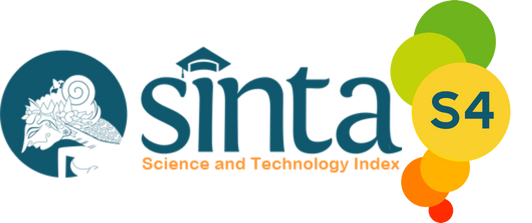
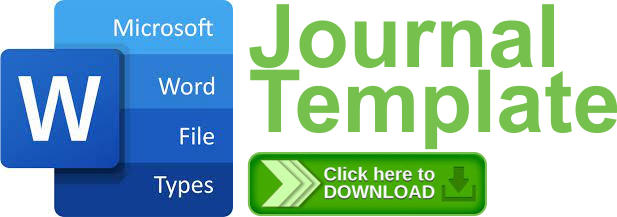










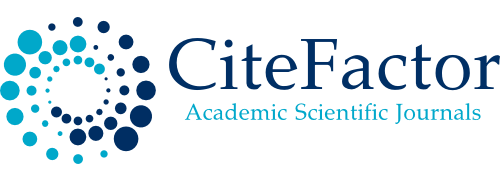



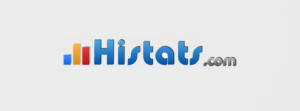

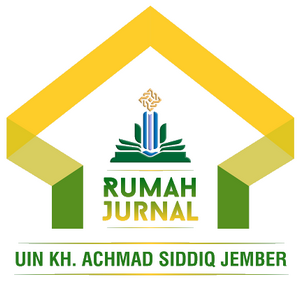



 Al'Adalah licensed under Creative Commons Attribution-NonCommercial 4.0 International License.
Al'Adalah licensed under Creative Commons Attribution-NonCommercial 4.0 International License.